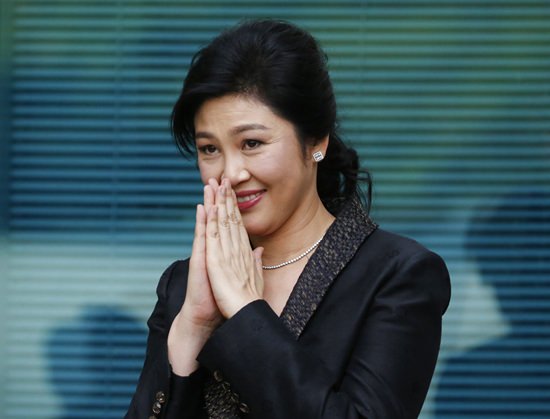
Bangkok (AP) – Yingluck Shinawatra, ousted as Thailand’s prime minister three years ago, failed to appear in court Friday, Aug. 25, to hear the verdict on charges that she was negligent in handling a rice subsidy for farmers that was the centerpiece of her party’s 2011 election campaign. She could face up to 10 years in prison if convicted.
Here’s a look at the case and key players involved:
What went wrong with subsidy program
Once Yingluck’s government took office, it paid rice farmers at inflated rates with the intention of driving up world prices by warehousing the grain. Instead, other rice-producing countries sold competitively and captured the market. Vietnam as a result replaced Thailand as the world’s leading rice exporter.
The government says the subsidy created a stockpile of 17.8 million tons of rice it couldn’t export at a price commensurate with what it had paid farmers. Prosecutors allege the government lost as much as $17 billion.
Critics saw the subsidy as a political ploy to buy the loyalty of rural voters with state funds. Prosecutors argued that Yingluck ignored warnings of corruption in the subsidy program and was guilty of dereliction of duty. Her supporters say the government has ignored the program’s benefits to farmers and note that it has not accused Yingluck herself of corruption.
Yingluck’s defense
Yingluck and her supporters say she is innocent and being persecuted in an effort to dismantle the political machine of her brother, former Prime Minister Thaksin Shinawatra, who was toppled from power by a 2006 military coup after being accused of abuse of power and corruption. His supporters, who delivered him unprecedented electoral victories, believe his only offense was challenging the power of the country’s traditional elite, led by monarchists and the military and supported by the urban middle class.
Thaksin is in self-imposed exile to avoid serving a prison term for what he calls a politically motivated 2008 conviction on a conflict of interest charge.
Yingluck, who inherited the leadership of Thaksin’s political machine and was elected prime minister in 2011, became a proxy target for his enemies.
How junta is
keeping control
Thailand is run by a military government that took power from Yingluck’s elected government in a May 2014 coup. Prime Minister Prayuth Chan-ocha, then the army chief, said the military needed to restore order after months of aggressive street protests. Those protests were triggered by a government effort to grant amnesty to politicians that could have allowed Thaksin to return to Thailand without going to prison.
The junta pushed through reforms ostensibly to curb corruption and money politics by limiting the power of elected politicians, but clearly aimed at keeping Thaksin and his allies from power. It has delayed holding fresh elections.
There are signs that Prayuth may seek to continue to serve as prime minister in an elected government. Even if he doesn’t, the new constitution imposed after the coup ensures the army’s influence in politics.
Possible outcomes
Yingluck’s lawyers on Friday informed the Supreme Court that she could not attend the verdict because of an earache. The court rejected that excuse, citing a lack of medical verification. It postponed the verdict until Sept. 27 and issued a warrant for Yingluck’s arrest.
The high court is a leading conservative institution and has a record of ruling against Thaksin’s supporters. Even before Yingluck failed to appear it had seemed likely that she would be convicted, because an acquittal would embarrass the government.
A conviction would pose risks of its own. Sending Yingluck to prison could help her supporters cast her as a victim of a democracy-destroying elite. Before Yingluck failed to appear Friday, a suspended sentence and a short symbolic stint in prison stood as strong possibilities.
Now, when the court returns to the case later this month, it’s possible that Yingluck will be convicted and sentenced in absentia – just as her brother was nine years ago.




